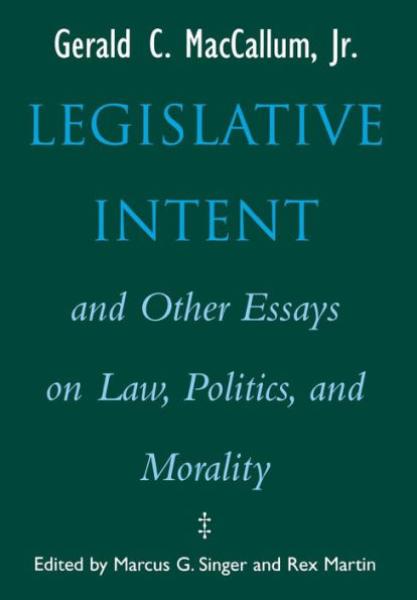Description
When he learned he had ALS and roughly two years to live, literary critic Mark Krupnick returned to the writers who had been his lifelong conversation partners and asked with renewed intensity: how do you live as a Jew, when, mostly, you live in your head? The evocative and sinuous essays collected here are the products of this inquiry. In his search for durable principles, Krupnick follows Lionel Trilling, Cynthia Ozick, Geoffrey Hartman, Philip Roth, Saul Bellow, and others into the elemental matters of life and death, sex and gender, power and vulnerability.
The editors Krupnick s wife, Jean K. Carney, and literary critic Mark Shechner have also included earlier essays and introductions that link Krupnick s work with the deep places of his own imagination.
"In the last years of his life, Gerald C. MacCallum, Jr., defied illness to continue his work on the philosophy of law. This book is a monument to MacCallum s effort, containing fourteen of his essays, five of them published here for the first time. Two of those previously published are widely admired and reprinted: Legislative Intent, certainly one of the best papers ever published on its topic, and Negative and Positive Freedom, which offered a new way of looking at a distinction that had been canonical for the last two centuries.
To complete MacCallum s unfinished pieces, Marcus G. Singer and Rex Martin painstakingly consulted MacCallum s notes for planned revisions. MacCallum discusses legal reasoning, the application of rules, the interpretation of statutes and constitutional provisions, and the relation of these matters to morality and justice. In the last decade of his working life, he became greatly concerned with the interrelated themes of integrity, autonomy, conscience, and violence. He wished to relate competition to morality and justice to adversarial systems of law. These themes are woven together in Legislative Intent and constitute the main subject of some of the essays.
MacCallum was engaged in a constant search for truth and understanding, and in his life and work lived up to Emerson s vision of the American Scholar as a human being thinking. These essays are informed by the author s deep curiosity, penetrating intelligence, wide knowledge, and outstanding character. They will be treasured wherever these characteristics and true philosophy are treasured.
"
Product Details
- University of Wisconsin P Brand
- Nov 1, 2005 Pub Date:
- 0299138607 ISBN-10:
- 9780299138608 ISBN-13:
- 288 Pages
- 9.36 in * 6.37 in * 1.03 in Dimensions:
- 1 lb Weight:




